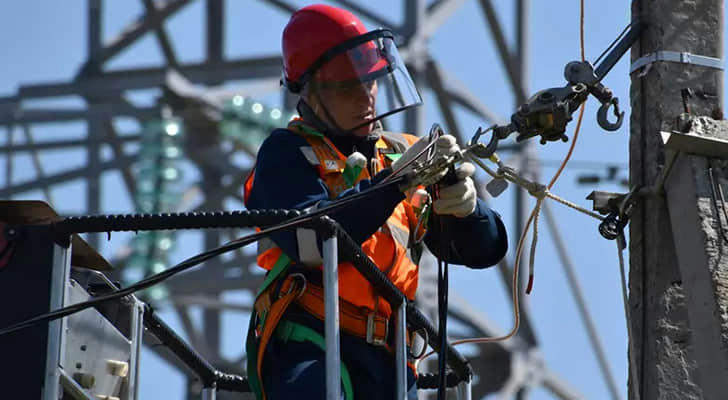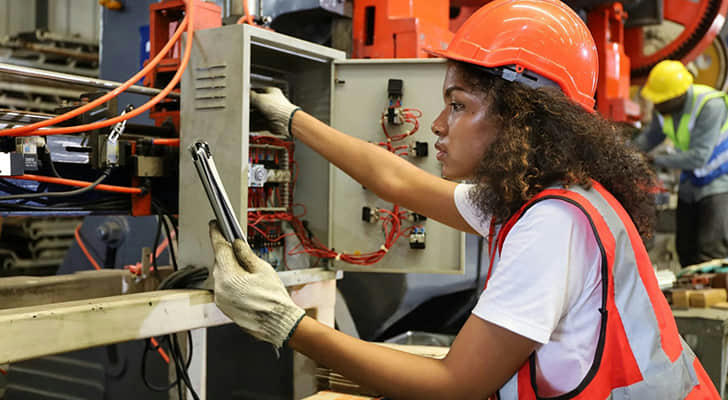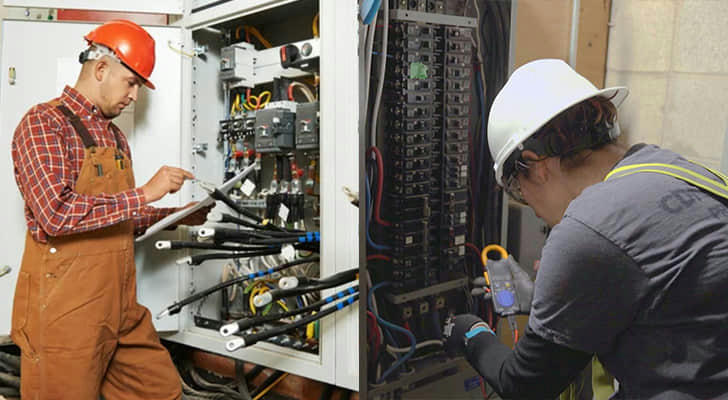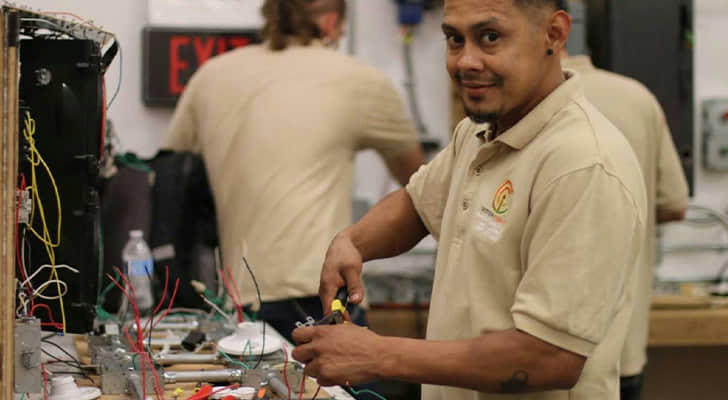Explore the Dynamic World of Electrician Careers in the USA
Electricians are the backbone of our modern infrastructure, ensuring that our homes, workplaces, and industries remain powered and operational. Their expertise is crucial in keeping everything from your morning coffee maker to complex industrial systems running smoothly. If you're intrigued by the idea of becoming an electrician or are already in the field and looking to advance, this guide will provide valuable insights into what you can expect from this exciting career.

What Does an Electrician Do?
Electricians are more than just repair specialists; they are integral to the functionality of our daily lives. They handle the installation, maintenance, and repair of electrical systems that power everything around us. This includes everything from residential lighting setups to complex industrial machinery. They must adhere to strict national electrical codes to ensure their work is safe and efficient.
A Day in the Life of an Electrician
The job of an electrician is diverse and involves several key responsibilities:
-Installation: Electricians are responsible for setting up new electrical systems, including wiring, switches, distribution panels, and lighting fixtures. They ensure that all installations meet national safety standards.
-Maintenance: Keeping electrical systems in top shape involves regular maintenance. Electricians check for faults, make necessary repairs, and ensure everything is functioning correctly.
-Testing: Routine tests on electrical systems are essential to confirm that they are working properly and safely. This helps prevent potential issues before they become serious problems.
-Troubleshooting: When something goes wrong with an electrical system, electricians use their skills to diagnose and fix the problem. This requires strong problem-solving abilities and technical knowledge.
-Safety Compliance: Ensuring that all work complies with safety regulations is a key part of the job. This helps prevent electrical fires and reduces the risk of electrocution.
-Documentation: Electricians keep detailed records of all their work, including repairs, updates, and inspections. This documentation is crucial for tracking the history of electrical systems.
-Customer Service: Good communication is essential. Electricians often interact with clients, explaining issues and discussing solutions to ensure customer satisfaction.
Specializations in the Electrical Field
Electricians can specialize in various areas, each offering unique opportunities:
-Residential Electricians: These professionals focus on homes, handling everything from electrical installations to repairs in residential settings.
-Commercial Electricians: They work on larger-scale projects in commercial properties like office buildings and shopping malls, dealing with more complex systems.
-Industrial Electricians: These electricians work in factories and industrial environments, maintaining heavy machinery and plant equipment.

-Maintenance Electricians: Specializing in keeping existing systems running smoothly, they perform routine maintenance and address any issues that arise.
-Remote Electricians: Often working in isolated locations such as mining sites or oil fields, these electricians face unique challenges.
-Security System Electricians: With a focus on security, these specialists install and maintain security systems, an increasingly important field due to heightened safety concerns.
If you're looking for job opportunities in these areas, BlueRecruit is a top platform for connecting skilled tradespeople with potential employers.
What Do You Need to Become an Electrician?
Becoming an electrician requires a combination of education, training, and practical experience:
-Education: Start with a high school diploma or equivalent. Courses in math and science are particularly useful.
-Vocational Training: After high school, enrolling in a trade school or vocational program will provide you with a solid understanding of electrical systems, codes, and safety procedures.
-Apprenticeship: This hands-on training typically lasts four to five years, combining classroom instruction with on-the-job experience.
-Licensing: After completing an apprenticeship, you'll become a journeyman electrician. Many electricians pursue additional certifications or licenses to advance their careers.
Consider getting OSHA 10 certification to enhance your qualifications. BlueRecruit offers discounted rates for this certification through a partnership with CareerSafe.
Pros and Cons of Being an Electrician
Pros: -Job Stability: Electricity is essential to modern life, ensuring that electricians are always in demand. This provides a high level of job security.
-Earning Potential: Electricians earn a competitive wage, with the average hourly rate around $35.71. Specialization and experience can lead to even higher earnings.
-Variety of Work: The job offers a wide range of experiences, from residential repairs to large-scale industrial installations, keeping the work interesting and varied.
-Entrepreneurial Opportunities: Once licensed, electricians can start their own businesses, offering opportunities for entrepreneurship.
-Continuous Learning: The field is constantly evolving with new technologies, providing electricians with ongoing opportunities for learning and professional development.

Cons:
-Physical Demands: The job can be physically demanding, involving heavy lifting, climbing ladders, and working in tight spaces.
-Challenging Conditions: Electricians sometimes work in tough conditions, including extreme weather and high-risk environments like power plants or construction sites.
-Irregular Hours: Electrical problems can occur at any time, leading to on-call work or overtime, including evenings and weekends.
-Long Training Period: The path to becoming a licensed electrician involves several years of training, which might be a drawback for those looking for a quicker start.
-Risk of Electrical Shocks: Despite safety precautions, there's always a risk of electrical shocks, which can lead to serious injuries.
Salary and Career Outlook
Electricians play a crucial role in maintaining electrical systems across various sectors. As of 2023, the average annual salary for electricians in the USA is approximately $74,275. Experienced electricians, particularly those in specialized roles like journeymen or master electricians, often earn more.
The job market for electricians is growing steadily. According to the Bureau of Labor Statistics, electrical-related jobs are expected to increase by 7% from 2021 to 2031, driven by construction and system maintenance needs.
Top-Paying States: Hawaii currently offers the highest salaries for electricians, followed by the District of Columbia and Washington. However, it's important to consider the cost of living in these areas.
Best States to Work: States like California, Texas, and Florida offer numerous job opportunities due to their significant industrial and residential developments. Wyoming and North Dakota are also gaining popularity due to the demand for electricians in their expanding tech and construction sectors.
Choosing the best state for an electrician depends on personal priorities such as salary expectations, lifestyle preferences, and cost of living.

Is a Career as an Electrician Worth It?
Absolutely! A career as an electrician provides job stability, good salaries, and numerous opportunities for career advancement. It combines theoretical knowledge with practical experience, making the work both engaging and rewarding.
Electricians enjoy a varied job that ranges from residential repairs to large-scale installations. The continuous advancements in technology offer ample opportunities for specialization and learning.
Electricians play a vital role in our world, and if you're interested in this career, it offers a promising and fulfilling path with plenty of opportunities for growth and specialization.
